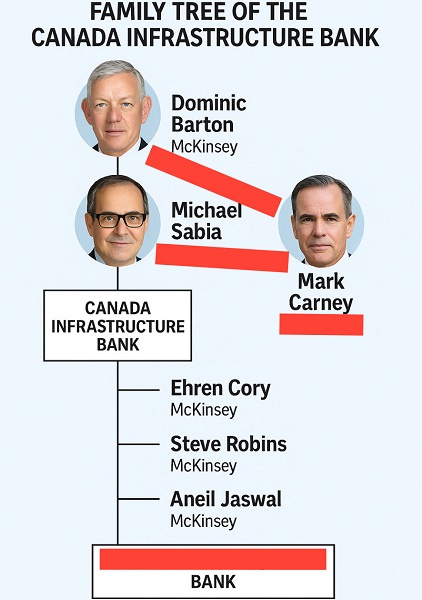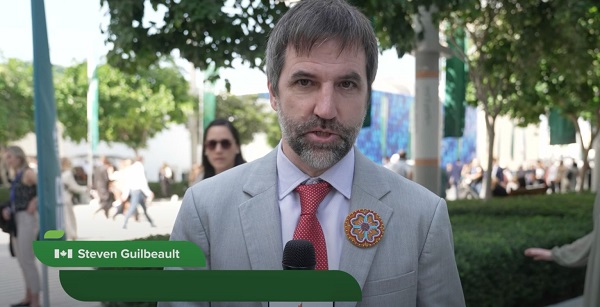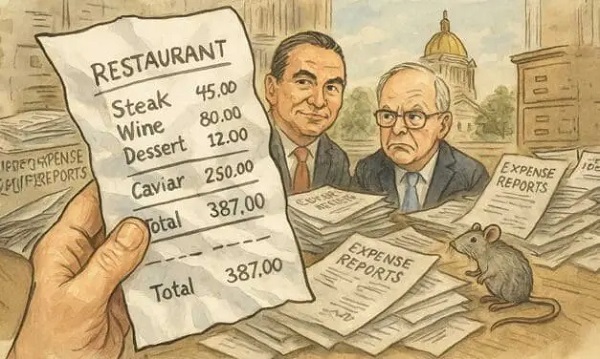Business
Ottawa’s civil service needs a Chrétien-style reset

This article supplied by Troy Media.
If Carney followed Chrétien’s lead, he could cut 64,000 jobs and save $10 billion a year
They say bureaucracy grows to meet the needs of the expanding bureaucracy. That certainly seems to be Ottawa’s motto these days, with the number of federal civil servants swelling by more than 100,000 over the past decade.
As the bureaucracy grew, so did the resources it devoured and the burden it dumped on the federal budget. If the Carney government is serious about tackling its spending problem, it has no choice but to shrink the civil service. To its credit, the government has already signalled this may be coming, with Finance Minister François-Philippe Champagne directing ministries earlier this month to cut program spending by 7.5 per cent in 2026-27, with deeper cuts to follow.
Payroll tells the story. When Justin Trudeau came to power in 2015, Ottawa was spending about $39.6 billion on employee compensation. Last year, that figure hit $71.1 billion—a staggering 79.5 per cent jump in nine years. Numbers that big are hard to picture, so here’s what they mean: $71.1 billion equals roughly $1,700 per Canadian, or about $7,000 for a family of four.
That’s a lot of money. Given those costs, Canadians are right to ask whether they’re getting anything close to value. The answer, judging by opinion surveys, is no.
Passport lines still snake around the block. Clearing customs at the airport remains a test of endurance. And if you dare call the Canada Revenue Agency, pack a lunch, you’ll be on hold long enough to need it. For all the extra spending, everyday frustrations remain the same.
If all that spending hasn’t delivered better results, it’s a flashing neon sign that resources are being wasted. The civil service is a prime candidate for cuts that could be made with little, if any, impact on the quality or speed of services Canadians actually receive.
The average compensation for a full-time federal job is now around $150,000 a year. That includes salary, taxpayer-funded pension contributions, and a generous menu of benefits. By contrast, the average Canadian earns about $60,000—the same taxpayer footing the bill— and the inequity speaks for itself.
The problem isn’t just the cost but the culture. In the private sector, businesses constantly ask whether jobs are necessary and whether people can be redeployed. In government, the tendency is to keep hiring, with little scrutiny of whether those positions are truly needed.
Yet there is precedent for Ottawa getting serious about reform. In the 1990s, Jean Chrétien’s government undertook a sweeping review that eliminated more than 17 per cent of federal positions.
If the Carney government followed that model, it could trim about 64,000 taxpayer-funded jobs and save at least $10 billion a year.
With Ottawa projected to run a deficit of over $40 billion this year, one of the largest structural deficits outside of the pandemic years, Canadians should expect—no, demand—an equally ambitious review.
Renaud Brossard is vice-president of communications at the Montreal Economic Institute, a think tank with offices in Montreal, Ottawa and Calgary.
Troy Media empowers Canadian community news outlets by providing independent, insightful analysis and commentary. Our mission is to support local media in helping Canadians stay informed and engaged by delivering reliable content that strengthens community connections and deepens understanding across the country.
Alberta
Taxpayers: Alberta must scrap its industrial carbon tax

-
Carney praises carbon taxes on world stage
-
Alberta must block Carney’s industrial carbon tax
The Canadian Taxpayers Federation is calling on the government of Alberta to completely scrap its provincial industrial carbon tax.
“It’s baffling that Alberta is still clinging to its industrial carbon tax even though Saskatchewan has declared itself to be a carbon tax-free zone,” said Kris Sims, CTF Alberta Director. “Prime Minister Mark Carney is cooking up his new industrial carbon tax in Ottawa and Alberta needs to fight that head on.
“Alberta having its own industrial carbon tax invites Carney to barge through our door with his punishing industrial carbon tax.”
On Sept. 16, the Alberta government announced some changes to Alberta’s industrial carbon tax, but the tax remains in effect.
On Friday night at the Global Progress Action Summitt held in London, England, Carney praised carbon taxes while speaking onstage with British Prime Minister Keir Starmer.
“The direct carbon tax which had become a divisive issue, it was a textbook good policy, but a divisive issue,” Carney said.
During the federal election, Carney promised to remove the more visible consumer carbon tax and change it into a bigger hidden industrial carbon tax. He also announced plans to create “border adjustment mechanisms” on imports from countries that do not have national carbon taxes, also known as carbon tax tariffs.
“Carney’s ‘textbook good policy’ comments about carbon taxes shows his government is still cooking up a new industrial carbon tax and it’s also planning on imposing carbon tax tariffs,” Sims said. “Alberta should stand with Saskatchewan and obliterate all carbon taxes in our province, otherwise we are opening the door for Ottawa to keep kicking us.”
Business
Elon Musk announces ‘Grokipedia’ project after Tucker Carlson highlights Wikipedia bias

From LifeSiteNews
By Joseph Quinn
Wikipedia co-founder Larry Sanger explained how Wikipedia systematically blacklists and “deprecates” conservative sources. Wikipedia remains one of the most heavily used information sources online and is integrated with Google search results.
Elon Musk has announced plans to build “Grokipedia,” a new open-source online encyclopedia under his artificial intelligence company xAI.
“Will be a massive improvement over Wikipedia,” Musk wrote on X. “Frankly, it is a necessary step towards the xAI goal of understanding the Universe.”
We are building Grokipedia @xAI.
Will be a massive improvement over Wikipedia.
Frankly, it is a necessary step towards the xAI goal of understanding the Universe. https://t.co/xvSeWkpALy
— Elon Musk (@elonmusk) September 30, 2025
The announcement came days after Tucker Carlson’s interview with Larry Sanger, a co-founder of Wikipedia and a vocal critic of the organization since his departure in 2002.
Larry Sanger built Wikipedia as an unbiased repository of the world’s knowledge, and then stood helplessly by as activists and intel agencies turned it into the most comprehensive propaganda op in human history. There’s nothing more corrupt.
(0:00) The Origins of Wikipedia… pic.twitter.com/J59oEejCG2
— Tucker Carlson (@TuckerCarlson) September 29, 2025
Sanger explained how Wikipedia systematically blacklists and “deprecates” conservative sources. Seeing LifeSiteNews on the list, Carlson said that the platform has become “a weapon of ideological, theological war.”
Musk echoed Sanger’s criticisms, affirming Judicial Watch president Tom Fitton’s claim that “Wikipedia is a smear machine for the Left.”
💯
— Elon Musk (@elonmusk) September 30, 2025
Musk later amplified memes promoting Grokipedia, calling it “an open source knowledge repository that is vastly better than Wikipedia.”
Join @xAI and help build Grokipedia, an open source knowledge repository that is vastly better than Wikipedia!
This will be available to the public with no limits on use. https://t.co/3CnfrvNIpI
— Elon Musk (@elonmusk) September 30, 2025
He also affirmed Sanger’s “Nine Theses,” which call for dismantling Wikipedia’s centralized editorial control.
Some good suggestions from the co-founder of Wikipedia https://t.co/bgwBmi6uXN
— Elon Musk (@elonmusk) September 30, 2025
Musk has not released technical details of the Grokipedia project but said that Grok AI will be independent of Wikipedia “by the end of the year.”
Images of a potential logo were also shared on his X account.
Wikipedia should have just taken that $1 billion offer from Elon Musk, it’s too late, the rival is coming: Grokipedia! pic.twitter.com/cLBKfPRgyO
— SMX 🇺🇸 (@iam_smx) September 30, 2025
Wikipedia remains one of the most heavily used information sources online and is integrated with Google search results. Critics argue that its governance model allows biased editors – described as “ideologically-driven thought police” – to shape content and suppress dissenting viewpoints, particularly on political, cultural, and religious topics.
A similar initiative called “Infogalactic” was launched in 2016. A “fork” of Wikipedia, it was designed to decentralize control and allow multiple perspectives. While Infogalactic never reached Wikipedia’s scale, it established a model for alternative knowledge repositories.
Attracting a critical mass of editors and establishing credibility remain significant challenges facing such alternatives. Musk’s involvement signals a higher-profile challenge to Wikipedia’s dominance, combining xAI’s technological resources with his public platform on X.
Musk has not provided a clear timeline, but the announcement positions xAI to mount a direct challenge to Wikipedia’s dominance of the information ecosystem.
-

 Business2 days ago
Business2 days agoDominic Barton’s Shadow Over $1-Billion PRC Ferry Deal: An Investigative Op-Ed
-

 Censorship Industrial Complex2 days ago
Censorship Industrial Complex2 days agoCanada To Revive Online Censorship Targeting “Harmful” Content, “Hate” Speech, and Deepfakes
-

 Alberta2 days ago
Alberta2 days agoAlberta refuses to take part in Canadian government’s gun buyback program
-

 Alberta2 days ago
Alberta2 days agoOrthodox church burns to the ground in another suspected arson in Alberta
-

 Alberta2 days ago
Alberta2 days agoAlberta puts pressure on the federal government’s euthanasia regime
-

 Fraser Institute1 day ago
Fraser Institute1 day agoAboriginal rights now more constitutionally powerful than any Charter right
-

 Business1 day ago
Business1 day agoNew PBO report underscores need for serious fiscal reform in Ottawa
-

 Business1 day ago
Business1 day agoTaxpayers deserve proof of how politicians spend their money








